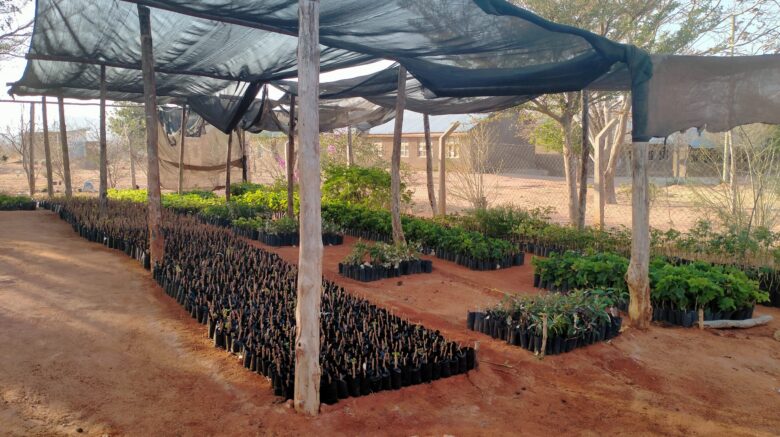Thanks to the cooperation with our Italian partner Gruppo Tanzania Onlus, that has been supporting KISEDET NGO since 1998, the organization has recently received the first installment from the Waldesian Church who finances the strengthening of the agricultural activities at the long-term Chigongwe Family reception center for street children, Dodoma, Tanzania.
Since 2010, year in which the long-term shelter was built in the village of Chigongwe, the center has become more and more sustainable and self-sufficient thanks to the implementation of agricultural activities on the arable land that surround the few buildings. This allows to ensure the hosted children a balanced diet rich in carbs, vitamins and proteins.
The land owned by KISEDET NGO is about 23 hectares of which almost 40% is already dedicated to agricultural activities: open field crops, fruit trees, vegetable gardens, grapes, arboreal trees.
The project recently financed by the Waldesian Church aims at ensuring the right to a high quality nutrition for children through agricultural and breeding activities improvement. The project has two main objectives: building a new chicken house, larger and more adequate, that can host hundreds of hens thus expanding the pilot chicken farm already initiated in 2020, and improving the system of irrigation which is currently done manually. The upgrading of the existing water plant is expected to improve well-to-surface pumping, while increasing reserve capacity of water and to ensure the water needs of those crops that provide the highest economic return.
The chicken farm will host mainly local rustic breeds for the production of meat and eggs to be used for internal and external use, according to the availability of products, in order to boost Chigongwe Family’s financial sustainability and to secure fresh food to the nearby villagers as well.
In a circular economy perspective, the animals will be fed with feed (leftover maize, sorghum, millet and sunflower, mineral and vitamin supplements), coming from the center itself or from neighboring companies, in such a way as to lower the feeding costs while also supporting the local economy. The manure collected will be used directly in the fields as an organic soil improver for fruit and vegetable crops.
Further, these new activities will create an opportunity for training the youth hosted at the shelter on the primary sector and on circular economy.
Works for the creation of the new hen house have started!
We will keep you updated! Keep reading the news!
Know more about Chigongwe Family shelter

